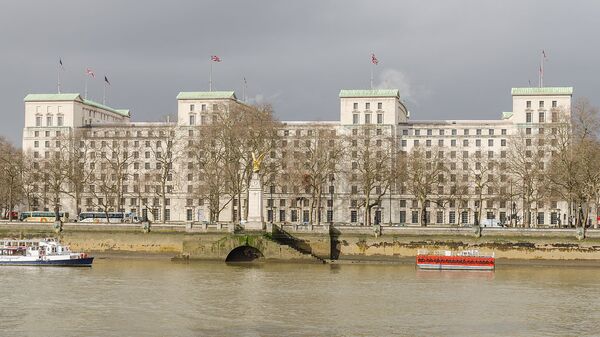The UK Ministry of Defence has released a comprehensive list of “fruitless payments” - money in excess of £30,000 spent unnecessarily, and/or which provided no benefit to the MoD whatsoever - 2016 - 2019, totalling £8.93 million.
The 64 payments, released in response to a Freedom of Information request, are defined officially as “[when] the department receives nothing useful in return and shouldn’t have incurred the liability, or could’ve taken appropriate action to avoid incurring the liability” - for example “the cost of repairing incorrectly packed equipment damaged in transit, the cost of rectifying design faults arising from poor specification, failure to cancel travel, accommodation and training bookings in time to obtain a refund”. In all 64 cases, no action whatsoever was taken against the individual(s) responsible for causing the MoD to unnecessarily squander public funds.
Many of the “fruitless payments” relate to Value Added Tax - namely, the MoD seems to have long-struggled to calculate the correct level of VAT it owes to HM Revenue and Customs, frequently underpays what’s owed, doesn’t pay the remainder within a set period, and is thus made subject to interest payments and penalty charges.
In all, the MoD paid 47 separate interest penalties, totalling £3.11 million over four years to HMRC - an explanatory note released with the figures states the department is taking a number of measures to tackle the long-standing issue. In one case, the MoD was also made subject to an interest payment of £43,646 by HMRC for underpaying tax, which resulted from the Ministry incorrectly classifying “school bus journeys in Cyprus” as a ‘Benefit in Kind’ - a tax-deductible perk staff receive from their employers but isn’t included in their salary - for “several years”.
Most underplayed story of the day? MoD wasted £9million in just three years on rent for demolished properties, consultants who did nothing,and “fruitless payments “. Needless to say no disciplinary action taken
— John Stapleton (@JohnStapletonTV) June 11, 2020
Other examples of cash needlessly splurged by the Ministry are even more farcical, however. For instance, the MoD pointlessly paid £157,500 to controversial US consultancy McKinsey, after the firm was contracted to support an independent internal review for the UK Defence Nuclear Organisation, (the nature of which isn’t specified). Under the terms of the contract, the DNO was required to formally notify McKinsey of the end date of its work in order to end the payments for McKinsey’s services - but the Organisation didn’t submit the end notice “in a timely manner”, which resulted in McKinsey being contractually entitled to payment for two weeks where they didn’t actually do any work for the DNO.
The biggest one-off payment by the MoD during these years was a whopping £3.3 million, due to “leased gas cannisters” being “not returnable” to an unspecified contractor - whether these cannisters were lost, or simply damaged beyond repair, isn’t specified.
The nameless company isn’t the only contractor to have done well out of the MoD’s proverbial “fruitless” budget - another received £363,000 because of its minimum order requirements for ration packs, which was higher than the MoD required, “but it was not possible to procure a smaller quantity”, another £57,724 because the MoD didn’t pay the organisation for its services within a specified period.
In last 4yrs, MOD has spent at least £9m on 'fruitless payments' including
— Sir Humphrey (@pinstripedline) June 5, 2020
£3.2m in payment fines to HMRC
£157k for Mckinsey Consultants to do no work for 2 weeks
£1m plus in rent for 360+ properties that had been demolished.
/1 pic.twitter.com/0kW2AoAdeH
It’s not the first time in 2020 serious questions have hovered over the MoD’s competence in budgetary matters - in January, a National Audit Office investigation concluded the department’s “poor management” of three critical infrastructure projects on nuclear-regulated sites in the UK had contributed to a costs overrunning by £1.35 billion, and delayed completion of the projects by up to six years.
The National Audit Office has inspected the Ministry of Defence's 32 most significant purchases, costing a total of £196bn. How many did it conclude were likely to arrive on schedule? Er, five. Full story in the new Private Eye. pic.twitter.com/SMJWLgoJAP
— Private Eye Magazine (@PrivateEyeNews) May 8, 2020
The three projects in question are the construction ‘MENSA’, a new nuclear warhead assembly and disassembly facility, valued at £1.8 billion, at an Atomic Weapons Establishment-operated site, upgrades to production capability facilities, costing at least £474 million, at a Rolls Royce-operated site, and the £240 million building of new facilities at a BAE Systems-operated dockyard in Barrow-in-Furness (Cumbria), to support improved submarine construction techniques.
The NAO found some of the designs to have been “more costly than necessary”, due to among other things construction starting before requirements or designs had even been completed, and the MoD inexplicably structuring contracts with contractors that put the department itself, and not its contractors, on the line financially for any increased costs accumulated over the course of a project.
Beyond the wasted sums, delays caused to the projects were said by the NAO to have broader implications for nuclear work, which the MoD “must manage”. For example, following delays to MENSA, the MoD and AWE were forced to continue using existing infrastructure, resulting in £21 being spent on site upgrades to continue to comply with regulations and be able to use the site.



